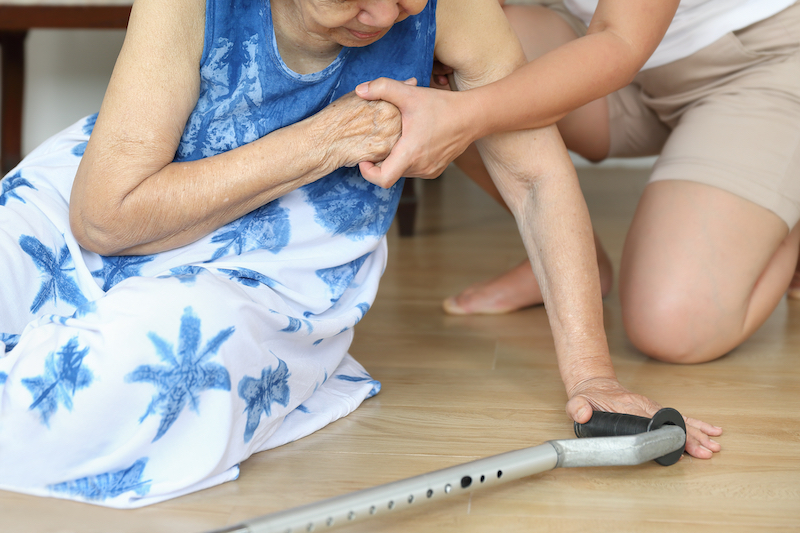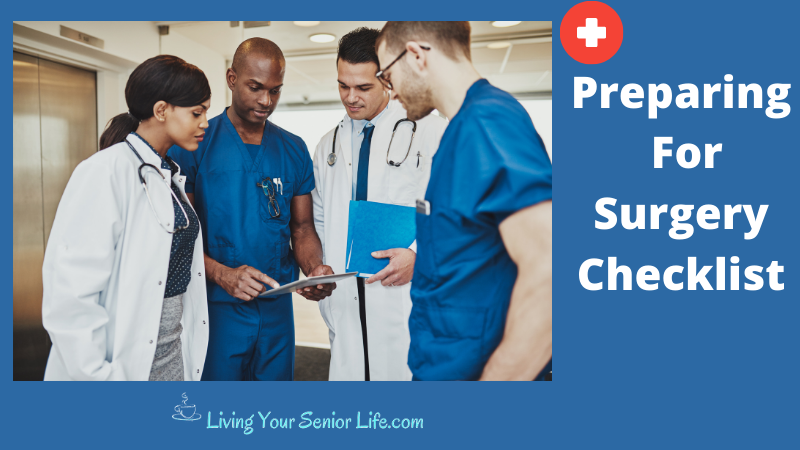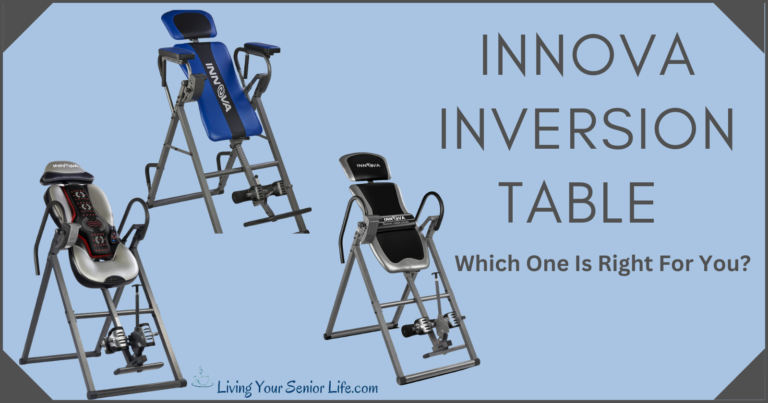Are you facing surgery? If you are, is this your first surgery, number 10, or somewhere in between? No matter your answer, you might be asking yourself – when it comes to surgery and age, does age matter?
Let me start by saying that most surgeries turn out fine due to advances in technology and medication. Surgery is a lot safer than it was 30, 40, or 50 years ago. But are there added risk factors because of age? The answer is yes, and no.
This article is for information purposes only, and you should not use it as an alternative to medical advice and consulting with your doctor and other health care professionals.
Video: Surgery And Age
My Age and Surgery – Should I be Worried?
A person’s chronological age is how many years it has been since their birth. There’s another type of age, and that is physiological age. Physiological age has to do with the biological state of the body. The two can be very different.
We have all heard of someone in their 30s who perhaps has had a hard life, maybe fighting diseases, or perhaps has consumed an excessive amount of drugs, and he/she appears much older than their chronological age. Someone else might be chronologically age 65, but they seem to be much younger because of their lifestyle.
Harriette Thompson
Let me give a few examples that might explain this a bit better. Harriette Thompson is an amazing woman. She participated in marathons well into her 90s. Something I can say, with certainty, I couldn’t do at my age – but there’s still hope, right?
Tao Porchon-Lynch
Another amazing person is Tao Porchon-Lynch, a woman who was still teaching yoga 5-6 times a week when she was 100 years old.
On a personal note, I recently met a woman who just celebrated her 90th birthday. For the sake of this article, I’ll call her Jan. Jan is still living on her own, in her own home. She just got her driver’s license renewed. She still gardens, which made me feel ashamed as I have a landscaper that comes and does my yard once a month. Jan is fully functioning; she doesn’t even wear glasses – amazing to me. When she told me her age, I was utterly dumbfounded. Just by looking at her, I guessed her age to be at least 20 years younger.
These women have a chronological age that most would consider elderly, yet their physiological age seems to be well below their chronological age.
This does bring to light that some older adults might be in a better position for surgery than someone, say, age 30 or 40. There is a saying I love – a person’s age should be treated as a fact, but not with unfair judgment.
Risk Factors For Seniors Facing Surgery
It’s not the patient’s age that is the only concern when facing surgery, but the patient’s health before their surgery that is of concern as well.
Part of the risk of surgery and facing surgical complications with older adults is that they may be dealing with other medical conditions. For instance, seniors have a higher incidence of hypertension, diabetes, and coronary heart disease than younger patients. These diseases, and those like them, increase the risk in older patients undergoing surgery. You should discuss with your doctor and other health care providers before any surgical procedure any chronic illnesses and health issues you have.
Hypertension

Hypertension, more commonly known as high blood pressure, is a disease that contributes to a higher risk of surgery. Hypertension has the inherent possibility of contributing to congestive heart failure, stroke, and even kidney problems. In the best of scenarios, it’s best to have hypertension under control before surgery.
Your doctor or surgical team may tell you to stop certain medications, such as those used to control blood pressure, before surgery. However, at times they advise you to continue with your blood pressure medication up to the day of surgery. You must find out what your doctor wants you to do and follow his/her instructions.
During surgery, the anesthesiologist will monitor your blood pressure and, if needed, administer medication.
Diabetes

Diabetes increases the risk of surgery in several ways; The chance of infection, including; sepsis, infection at the incision site, and urinary tract infections, increases surgery risk. An increased chance of pneumonia and slow healing of the incision site is an added risk to older patients.
The better control you have over your blood glucose level before surgical procedures, the better the chance of a successful surgery. With diabetes, you also want to find out if your doctor wants you to continue or discontinue your medication before surgery.
During surgery, your anesthesiologist can administer insulin or glucose as needed but ask your doctor if this will be the case with your surgery and again follow his/her instructions.
Coronary Heart Disease

Coronary heart disease brings added risks to surgery. Your surgeon will probably have you meet with a heart specialist before surgery. Be sure to discuss with the cardiologist any concerns or questions you have. Many times, once you have answers to these, you will experience less stress.
Complications from Anesthesia
Delirium, confusion, and cognitive problems resulting from anesthesia are seen more often in the elderly patient than in younger patients.
If a patient suffers delirium from anesthesia, they may show signs of being agitated, confused, disoriented, and unaware of their surroundings. This side-effect usually clears up within three days post-surgery.
Another complication from anesthesia is something called postoperative cognitive dysfunction or POCD. POCD manifests itself as long-term memory loss, learning difficulties, and trouble concentrating. This complication often resolves within three months, and by two years post-surgery, only 1% of those afflicted are still experiencing symptoms.
How to Prepare for Surgery

What are some steps you can take before your surgery to lessen the risks and to prepare yourself?
- When you meet with your doctor, tell him/her all the medications you are taking. This includes not only prescription medication but over-the-counter medications and also supplements. Supplements are often thought harmless, but some can cause problems in surgery. I was surprised when I was told to stop taking the supplement Turmeric a week before surgery. Make a list of your medications so you can give it to the doctor, and he/she can then go over them with you.
- Tell the doctor of any allergic reactions you have had to any medications.
- Tell the doctor of any allergies that would be pertinent to the care you will be receiving. For instance, do you have an allergy to latex? What about adhesives? Even if you think it might not matter for surgery, tell your doctor about your allergies and let him/her decide.
- Don’t rely on the internet for your medical care or diagnosis.
- A second opinion never hurts.
- Limit alcohol intake.
- Quit smoking.
- Get any diseases under control.
- Exercise – even if it’s a short walk.
- A healthful diet is good anytime, but especially before and after surgery. Remember to find out when you can last eat and drink before the surgery. Many times the cut-off time is midnight, but again, ask your doctor to be sure.
- Sleep – it’s crucial for recovery as well.
Additional Tips
Be sure all your important documents are up to date. Have someone ready to make decisions for you if you’re not able to for some reason.
These documents are good to have any time and worth taking the time to either complete or update before surgery. I had a document I didn’t realize was out of date until I did this step before surgery. I had a beneficiary statement that was 12 years old. The person was still the same, but the name, address, and phone number had changed.
Five of the documents you should have are:
- Will
- Revocable Living Trust
- Advanced Directive
- Durable Power of Attorney for Healthcare
- Financial Power of Attorney
If you are considering preparing these important documents yourself, another article I wrote, Nolo’s Quicken WillMaker & Trust Review discusses the features and the pros and cons of this popular software program that is used for this purpose.
Check that your medical insurance has been verified – find out what is in and out-of-network. You’ll also want to find out your deductibles and how much you will be responsible for-you don’t want any surprises.
Have someone lined up to pick you up from the hospital and be with you the first few days following surgery.
Have food prepared and frozen so you won’t have to worry about cooking when you get home — stock up on non-perishable items.

Be sure your home is clutter-free – you don’t want added risks once you return home. Clear the floor of any potential tripping hazards. Be sure throw rugs are up or at least secured. Have night lights in the hallways, bathrooms, and bedrooms.
Additional Reading
The Take Away
When it comes to surgery and the elderly – does age matter? Age, per se, is not the only risk in surgery, but those health issues that seem to crop up as we age can increase the risk.
Hypertension, diabetes, and coronary heart disease are a few of those health issues. Get yourself in the healthiest possible state before surgery.
Talk honestly with your doctor about any health concerns you have and discuss how these may affect your surgery.
Remember, knowledge is power, so be sure to ask any questions you may have. Being informed and prepared will help relieve some of the stress you may be experiencing going into surgery.
Please note that there is nothing in this article Surgery and Age, Does Age Matter?, that should take the place of you consulting with your doctor.
Comment below with your story of surgery or any good ideas or tips you have to better prepare for surgery.











Thank you for sharing the tips of what and what not to do within this article. I appreciate all the time you take to write these articles. It can really make a difference in someone’s life!
Hi Summer,
Thank you for stopping by and taking the time to comment. I appreciate your kind words. Thank you again.